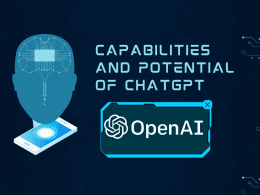In today’s dynamic business environment, organizations are increasingly leveraging technology to enhance their operations. Among these technologies, AI tools for operations management have emerged as pivotal in driving efficiency, improving decision-making, and streamlining processes. This article provides a comprehensive guide on implementing AI tools within your operations management framework, addressing key applications, benefits, challenges, and best practices for successful integration.
Understanding AI Tools for Operations Management
AI tools for operations management encompass a range of technologies that utilize artificial intelligence to automate tasks, analyze data, and enhance decision-making processes. These tools can be applied across various operational areas, from supply chain management to customer service, empowering organizations to optimize their performance and remain competitive.
Key Applications of AI Tools in Operations Management
- Supply Chain Optimization: AI tools can analyze historical data, market trends, and consumer behavior to optimize inventory levels, manage logistics, and predict demand fluctuations.
- Predictive Maintenance: In manufacturing settings, AI tools monitor equipment performance and predict potential failures before they occur, minimizing downtime and maintenance costs.
- Automated Customer Service: AI-driven chatbots and virtual assistants can handle customer inquiries and provide instant support, freeing human agents to focus on more complex issues.
- Data Analytics and Reporting: AI excels at processing vast amounts of data quickly, identifying trends and insights that inform strategic decision-making.
- Workforce Management: AI tools can optimize workforce scheduling and resource allocation, ensuring that the right personnel are available when needed.
Benefits of Implementing AI Tools in Operations Management
1. Increased Efficiency
One of the most significant advantages of integrating AI tools into your operations management framework is enhanced efficiency.
- Automation of Routine Tasks: AI can automate repetitive tasks such as data entry, invoicing, and inventory management, allowing employees to focus on higher-value activities.
- Streamlined Workflows: AI tools can facilitate smoother workflows by providing real-time data and insights, enabling quicker decision-making and task execution.
2. Improved Accuracy
AI tools help minimize human error, leading to more accurate outcomes.
- Data-Driven Insights: AI algorithms analyze data more accurately than humans, reducing the chances of mistakes and improving the reliability of forecasts.
- Consistency: AI systems execute tasks consistently, ensuring that processes are carried out uniformly across the organization.
3. Cost Reduction
The implementation of AI tools can lead to significant cost savings.
- Operational Costs: By streamlining processes and automating tasks, organizations can lower operational costs, which can be redirected to other areas of the business.
- Minimized Downtime: Predictive maintenance powered by AI can significantly reduce equipment failures, leading to lower maintenance costs and less downtime.
4. Enhanced Customer Experience
AI tools can elevate the customer experience in various ways.
- Personalization: AI can analyze customer data to offer personalized recommendations, enhancing customer engagement and satisfaction.
- 24/7 Availability: AI-powered chatbots can provide instant support to customers at any time, improving response times and overall service quality.
Steps for Implementing AI Tools in Your Operations Management Framework
1. Define Clear Objectives
Before implementing AI tools, it’s essential to define clear objectives for what you want to achieve.
- Identify Use Cases: Determine specific areas within operations management where AI can drive the most value. This could include supply chain optimization, customer service, or data analytics.
- Set Measurable Goals: Establish key performance indicators (KPIs) to measure the success of AI initiatives and track progress over time.
2. Assess Current Capabilities
Understanding your organization’s existing capabilities is crucial for successful AI integration.
- Evaluate Infrastructure: Assess whether your current technology infrastructure can support AI implementation. This includes hardware, software, and data storage capabilities.
- Data Quality: Ensure that you have high-quality, well-organized data. AI systems rely heavily on data, and poor data quality can lead to inaccurate predictions and outcomes.
3. Choose the Right AI Tools
Selecting the appropriate AI tools is a vital step in the integration process.
- Research Available Solutions: Look for AI tools that align with your objectives and capabilities. Consider features such as ease of use, scalability, and integration with existing systems.
- Vendor Evaluation: Choose vendors with a strong reputation in the industry and a track record of successful AI implementations. Look for customer reviews and case studies to inform your decision.
4. Develop a Comprehensive Implementation Plan
A well-structured implementation plan is essential for successful integration.
- Phased Approach: Consider a phased approach to implementation, starting with a pilot program that allows you to test the AI tools before a full rollout.
- Resource Allocation: Identify the resources required for implementation, including budget, personnel, and training.
5. Train Your Team
Training is a critical component of successfully implementing AI tools in operations management.
- Comprehensive Training Programs: Develop training programs tailored to different user groups within your organization. Ensure that employees are comfortable using the new AI tools.
- Ongoing Support: Provide access to ongoing training resources, such as user manuals and online tutorials, to help employees navigate the system effectively.
6. Monitor and Evaluate Performance
Continuous monitoring and evaluation are essential for optimizing the performance of AI in operations management.
- Regular Reviews: Conduct regular reviews to assess the effectiveness of your AI initiatives and identify areas for improvement.
- Adapt and Iterate: Be willing to adapt your strategies based on performance feedback and changing business needs.
Challenges of Implementing AI Tools for Operations Management
While the benefits of AI integration are substantial, organizations may face several challenges during the process.
1. Resistance to Change
Employees may be resistant to adopting AI technologies due to fear of job loss or discomfort with new tools.
- Effective Communication: Clearly communicate the benefits of AI and its role in enhancing employee capabilities to alleviate concerns.
- Involvement in the Process: Involve employees in the decision-making process and seek their input during the integration phase. This can foster a sense of ownership and acceptance.
2. Data Privacy and Security
As AI relies heavily on data, organizations must address concerns related to data privacy and security.
- Compliance: Ensure that your AI implementations comply with relevant data protection regulations, such as GDPR or HIPAA.
- Robust Security Measures: Implement strong cybersecurity measures to protect sensitive data from unauthorized access.
3. Integration with Existing Systems
Integrating AI tools with existing operational systems can be complex and time-consuming.
- Compatibility Issues: Be prepared to face compatibility issues between new AI solutions and legacy systems, which may require additional resources for integration.
- Data Silos: If data is stored in disparate systems, it can hinder the effectiveness of AI solutions. Ensure that data is accessible and well-organized.
Conclusion
Implementing AI tools for operations management is a strategic move that can significantly enhance efficiency, improve decision-making, and elevate customer experiences. By following a structured approach to integration and addressing potential challenges proactively, organizations can harness the full potential of AI technologies. As the operational landscape continues to evolve, embracing AI will be essential for staying ahead and achieving operational excellence.












